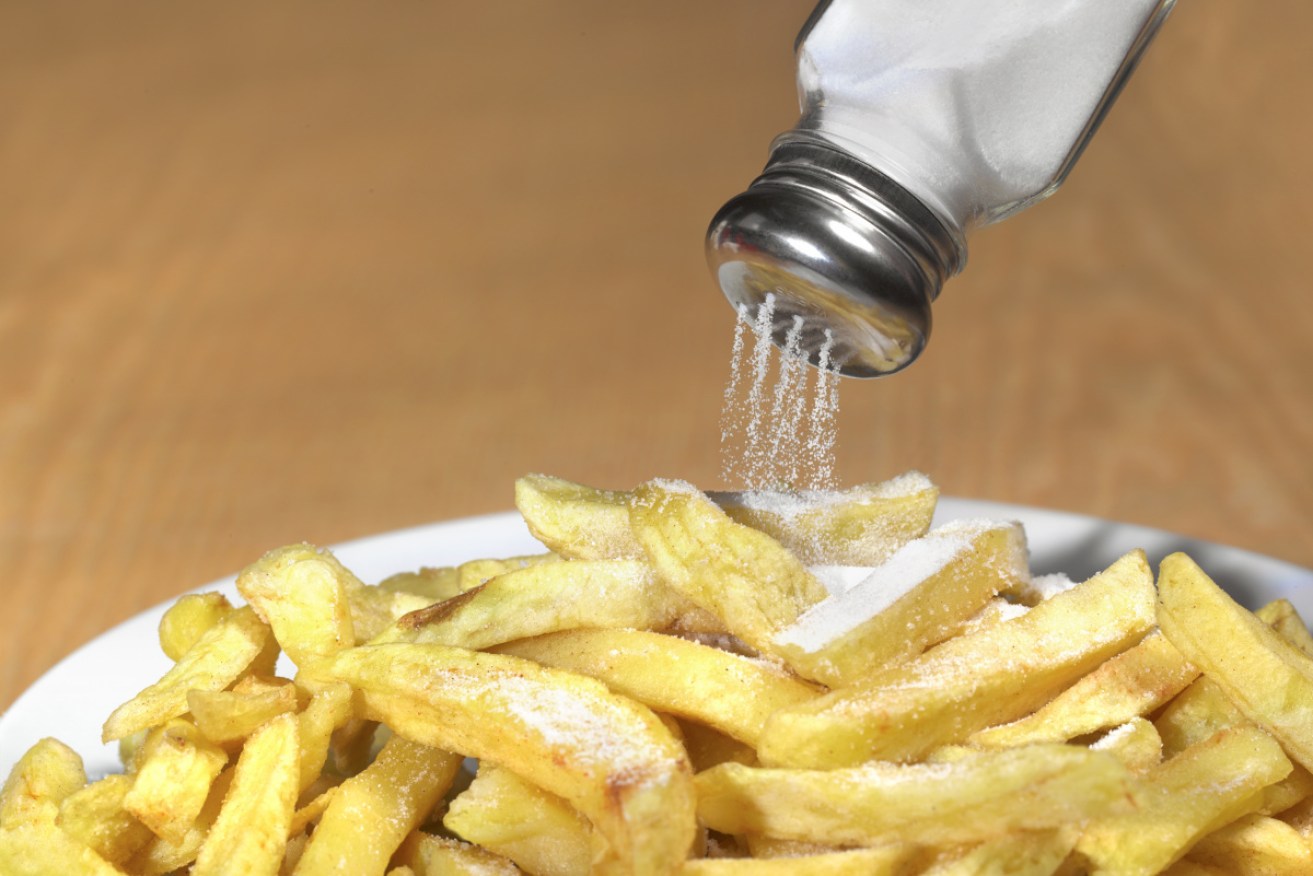Researchers find a salt substitute that could prevent ‘millions of early deaths’


Potassium chloride, as a substitute for table salt, has been found to be protective against stroke and heart disease. Conditions apply. Photo: Getty
A major study has found that diluting your intake of table salt by 25 per cent – substituting potassium chloride for sodium chloride – significantly reduces rates of stroke, heart attack and death.
The study, from The George Institute for Global Health in Sydney, involved more than 20,000 participants from rural China – and they either had a history of stroke or were 60 years of age or older and had high blood pressure.
In other words, they were people vulnerable to excessive sodium’s health-wrecking ways.
The other major finding is that potassium chloride – in a relatively modest serving – wasn’t found to be dangerous to people with conditions such as heart disease, high blood pressure, liver disease or diabetes.
The kidney caveat
The safety of potassium chloride as a salt substitute has long been questioned, especially for people with these conditions.
Lead investigator, Professor Bruce Neal of The George Institute, in a prepared statement said:
“As well as showing clear benefits for important health outcomes, our study also allays concerns about possible risks. We saw no indication of any harm from the added potassium in the salt substitute.”
But this comes with a caveat:
“Certainly, patients with serious kidney disease should not use salt substitutes, but they need to keep away from regular salt as well.”
The study’s news will take a while to filter through to your GP – if it cuts through at all. So it would be wise to raise the findings with your doctor and have a good chat about your options. One great study may not translate to a unanimous all-clear.
What were they thinking?
The thinking behind the study was this: High levels of sodium intake and low levels of potassium intake are widespread, and both are linked to high blood pressure and greater risks of stroke, heart disease and premature death.
Using a salt substitute – where some of the sodium chloride is replaced with potassium chloride – addresses both problems at once.
“Salt substitutes are known to lower blood pressure but their effects on heart disease, stroke, and death were unclear until now,” said the researchers.
There was plenty of old-fashioned table salt in the substitute – 75 per cent sodium chloride is diluted with 25 per cent potassium chloride.
What the study found
The Salt Substitute and Stroke Study enrolled 21,000 adults with either a history of stroke or poorly controlled blood pressure from 600 villages in rural areas of five provinces in China – Hebei, Liaoning, Ningxia, Shanxi and Shaanxi – between April 2014 and January 2015.
Participants in intervention villages were provided enough salt substitute to cover all household cooking and food preservation requirements – about 20g per person per day.
Those in the other villages continued using regular salt.
During an average follow up of almost five years, more than 3000 people had a stroke.
For those using the salt substitute, researchers found that stroke risk was reduced by 14 per cent, total cardiovascular events (strokes and heart attacks combined) by 13 per cent and premature death by 12 per cent.
Professor Neal said the scale of the benefit seen in the study “could prevent millions of early deaths if salt substitutes were widely adopted”.
Still, there’s a good incentive to restrict your intake of potassium chloride – it has a metallic taste when too heavily sprinkled.








